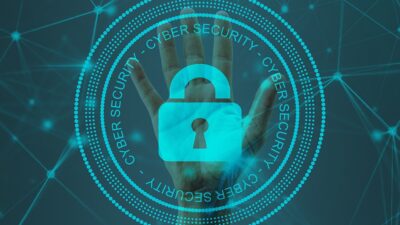The digital landscape has witnessed unprecedented transformation over the past decade, redefining our understanding of ownership. At the forefront of this evolution are Non-Fungible Tokens (NFTs), a groundbreaking technology that not only changes how we perceive digital assets but also how we engage with the broader digital economy. As we delve into the future of ownership, it’s essential to understand the significance of NFTs and their potential implications across various sectors.
Understanding NFTs: A New Digital Asset Class
NFTs are unique digital tokens that represent ownership or proof of authenticity for a wide array of assets, from digital art and music to virtual real estate and collectibles. Unlike cryptocurrencies such as Bitcoin or Ethereum, which are fungible and can be exchanged one-for-one, NFTs are distinct and cannot be directly replaced. This inherent uniqueness allows NFTs to imbue digital items with authenticity, provenance, and scarcity—attributes that have historically been challenging to establish in the digital realm.
Transforming Traditional Ownership Models
1. Art and Creative Industries
In the art world, NFTs have revolutionized how creators monetize their work. Digital artists, musicians, and filmmakers can now sell their creations directly to consumers without the need for intermediaries. This direct-to-consumer model has enabled artists to retain more of the proceeds from their sales, democratizing access and redistributing economic power.
Additionally, NFTs allow for fractional ownership, enabling multiple individuals to own shares of high-value digital art pieces. This concept opens doors for more people to engage with and invest in the art world, potentially leading to a new generation of art collectors.
2. Gaming and Virtual Worlds
The gaming industry is another sector ripe for transformation through NFTs. Players can own, buy, sell, and trade in-game assets, characters, and skins as NFTs, injecting real-world value into virtual goods. This shift not only enhances player engagement but also creates new revenue streams for game developers. The ability to transfer assets between different games and platforms fosters a gaming economy where value can be preserved beyond any single title.
3. Real Estate and Property Management
In real estate, NFTs can streamline property transactions by tokenizing properties on the blockchain. This process ensures transparent records of ownership, reduces fraud, and speeds up transactions. Furthermore, fractional ownership of real estate can be facilitated through NFTs, lowering the barrier to entry for investors who wish to diversify their portfolios.
Challenges and Considerations
While the potential of NFTs is immense, several challenges must be addressed for them to achieve widespread adoption. Issues related to environmental impact, copyright and intellectual property rights, and market volatility pose significant hurdles. The carbon footprint associated with blockchain transactions has raised questions about sustainability, prompting some platforms to seek greener alternatives.
Moreover, the legal landscape surrounding NFTs remains underdeveloped. Ownership rights can be ambiguous, particularly when it comes to copyright and trademark considerations. As the market matures, legal frameworks need to evolve to provide clarity and protection for both creators and consumers.
The Future Landscape: Interoperability and Integration
Looking ahead, the future of NFTs hinges on interoperability—the ability for NFTs to function across different platforms and ecosystems. As the digital economy continues to expand, the development of standards that allow seamless transactions and interactions between various blockchain networks will be crucial.
Additionally, the integration of NFTs into broader financial systems and traditional industries is on the horizon. As more businesses recognize the value of digital ownership, we can anticipate a growing trend toward incorporating NFTs into loyalty programs, digital identity verification, and supply chain management.
Conclusion
As we navigate the future of ownership in the digital economy, NFTs represent a paradigm shift with the potential to redefine our relationship with digital assets. By bridging the gap between the physical and digital worlds, NFTs offer innovative solutions across various industries. While challenges remain, the ongoing evolution of NFT technology will likely drive new business models, enhance consumer experiences, and empower creators in ways that were once thought impossible.
The question now is not whether NFTs will play a pivotal role in our digital future but how we will harness their power to create a more inclusive, equitable, and vibrant economy for all.


